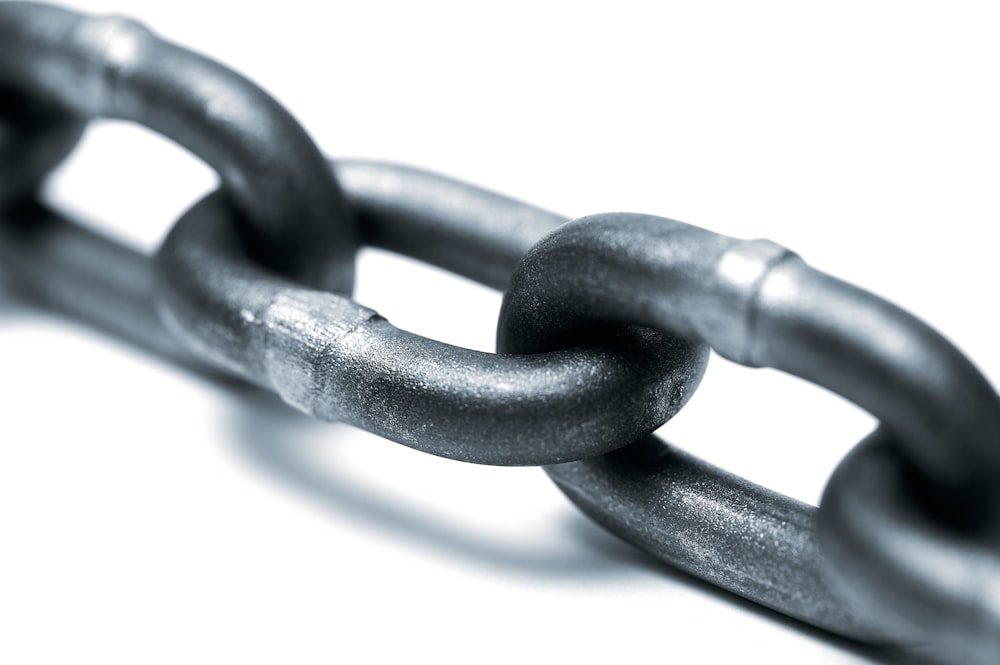In the vast landscape of industrial and manufacturing needs, chains serve as the backbone of many operations. Whether it’s for machinery, transportation, or securing loads, having reliable chains is essential for ensuring smooth operations and safety. However, finding trustworthy chain suppliers can be a daunting task, especially with the myriad of options available in today’s market. In this comprehensive guide, we’ll delve into the key aspects of identifying and selecting reliable chain suppliers to meet your specific requirements.
Researching Potential Suppliers
Industry Reputation: Prioritize evaluating their industry reputation. When choosing an industrial chain supplier, seek out testimonials, reviews, and case studies specific to your industry to assess their track record in providing quality products and services. This thorough examination of their reputation will help you make informed decisions and choose suppliers who have a proven history of delivering reliable solutions aligned with your business needs.
Certifications and Standards: Check if the suppliers adhere to industry standards and hold relevant certifications such as ISO 9001 for quality management systems or ISO 14001 for environmental management systems. These certifications can indicate a commitment to quality and reliability.
Product Range: Evaluate the supplier’s product range to ensure they offer the specific type, size, and material of chains you require. A diverse product portfolio indicates versatility and the ability to cater to various customer needs.
Customization Options: Inquire about the supplier’s customization capabilities. A reliable supplier should be able to tailor chains to meet your unique specifications, whether it’s modifying dimensions, coatings, or adding specialized attachments.
Supply Chain and Logistics: Assess the supplier’s supply chain capabilities and logistics infrastructure. Timely delivery is crucial in industrial operations, so ensure they have efficient processes in place to meet your timelines consistently.
Understanding Your Chain Needs
Understanding your chain needs is paramount before engaging with suppliers. This entails a comprehensive assessment of various factors, including the specific type of chain required, such as roller chains, conveyor chains, or welded chains. Additionally, understanding the ideal material composition, whether it’s stainless steel, carbon steel, or alloy steel, plays a crucial role. Size specifications must be accurately determined to ensure compatibility with existing equipment or applications.
Moreover, considering additional features like corrosion resistance or specialized coatings is essential to meet performance and longevity expectations. By having a clear grasp of these requirements, you can effectively communicate your needs to potential suppliers and make informed decisions that align with your operational objectives.
Quality Assurance and Testing
Reliable chain suppliers prioritize quality assurance throughout the manufacturing process. Inquire about their quality control measures, testing procedures, and certifications related to material composition, strength, and durability. Look for suppliers who conduct rigorous testing, such as tensile strength tests, fatigue tests, and surface finish inspections, to ensure their chains meet or exceed industry standards.
Pricing and Cost Considerations
While cost is a significant factor in supplier selection, it should not be the sole determining factor. Compare quotes from multiple suppliers, considering factors such as product quality, customization options, lead times, and after-sales support. Opting for the cheapest option may result in subpar quality or unreliable service, leading to potential downtime and higher long-term costs.
Communication and Customer Support
Effective communication and responsive customer support are essential qualities of reliable chain suppliers. Evaluate their communication channels, response times, and willingness to address your queries and concerns promptly. A supplier who values open communication and provides proactive support fosters a strong and trustworthy partnership.
Sustainability and Ethical Practices
In today’s business landscape, sustainability and ethical practices are increasingly important considerations. Inquire about the supplier’s environmental initiatives, waste management practices, and adherence to ethical labor standards. Choosing a supplier with a commitment to sustainability not only aligns with ethical values but also contributes to a more resilient and responsible supply chain.
Building Long-Term Relationships
Once you’ve identified a reliable chain supplier that meets your criteria, focus on nurturing a long-term relationship. Maintain open communication, provide feedback on product performance, and collaborate on continuous improvement initiatives. A strong partnership with your supplier can lead to mutual benefits, including cost efficiencies, innovation, and enhanced reliability.
Finding reliable chain suppliers involves a strategic approach encompassing thorough research, quality assessment, cost considerations, communication, and sustainability principles. By understanding your chain needs, conducting diligent supplier research, prioritizing quality assurance, considering pricing factors wisely, emphasizing communication and support, and fostering long-term relationships, you can navigate the supplier landscape effectively and secure trusted partners for your chain requirements.
In the dynamic landscape of industrial operations, reliable chains are not just components; they are critical elements that drive productivity, safety, and success. Choosing the right chain supplier is a foundational step toward achieving operational excellence and resilience in today’s competitive markets.



![How to Watch Movies Comfortably on a Plane [Ultimate Guide]](https://techbullion.com/wp-content/uploads/2025/11/Screenshot-59-300x180.png)
![How to Watch Movies Comfortably on a Plane [Ultimate Guide]](https://techbullion.com/wp-content/uploads/2025/11/Screenshot-59-80x80.png)





























